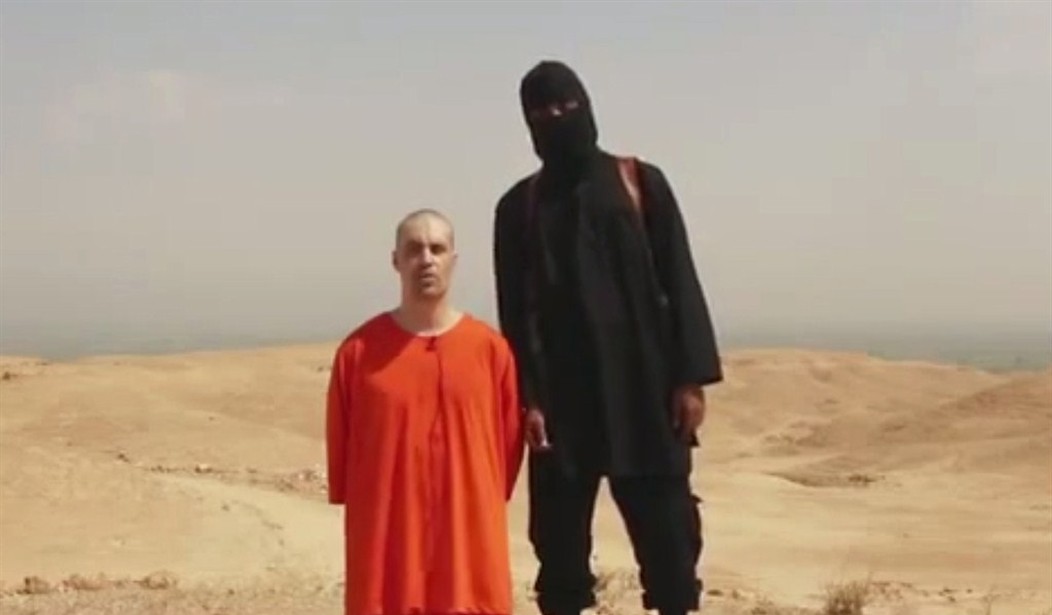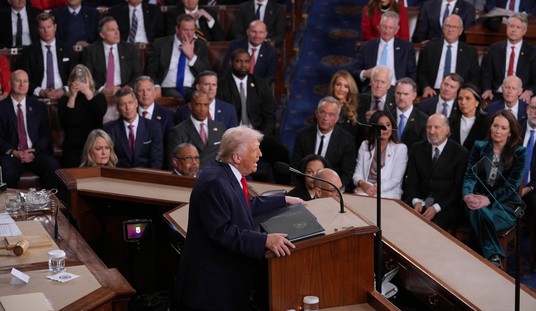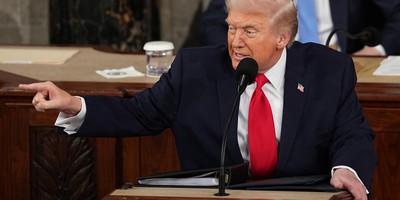Graeme Wood's lengthy piece on the roots, goals and motivations of ISIS in The Atlantic has gone viral this week, and deservedly so. It offers an insightful, frightening and illuminating analysis of the hardcore Islamist army whose
Advertisement
We have misunderstood the nature of the Islamic State in at least two ways. First, we tend to see jihadism as monolithic, and to apply the logic of al-Qaeda to an organization that has decisively eclipsed it. The Islamic State supporters I spoke with still refer to Osama bin Laden as “Sheikh Osama,” a title of honor. But jihadism has evolved since al-Qaeda’s heyday, from about 1998 to 2003, and many jihadists disdain the group’s priorities and current leadership. Bin Laden viewed his terrorism as a prologue to a caliphate he did not expect to see in his lifetime. His organization was flexible, operating as a geographically diffuse network of autonomous cells. The Islamic State, by contrast, requires territory to remain legitimate, and a top-down structure to rule it. (Its bureaucracy is divided into civil and military arms, and its territory into provinces.) We are misled in a second way, by a well-intentioned but dishonest campaign to deny the Islamic State’s medieval religious nature....There is a temptation to rehearse this observation—that jihadists are modern secular people, with modern political concerns, wearing medieval religious disguise—and make it fit the Islamic State.
In fact, much of what the group does looks nonsensical except in light of a sincere, carefully considered commitment to returning civilization to a seventh-century legal environment, and ultimately to bringing about the apocalypse. The most-articulate spokesmen for that position are the Islamic State’s officials and supporters themselves. They refer derisively to “moderns.” In conversation, they insist that they will not—cannot—waver from governing precepts that were embedded in Islam by the Prophet Muhammad and his earliest followers...The reality is that the Islamic State is Islamic. Very Islamic. Yes, it has attracted psychopaths and adventure seekers, drawn largely from the disaffected populations of the Middle East and Europe. But the religion preached by its most ardent followers derives from coherent and even learned interpretations of Islam. Virtually every major decision and law promulgated by the Islamic State adheres to what it calls, in its press and pronouncements, and on its billboards, license plates, stationery, and coins, “the Prophetic methodology,” which means following the prophecy and example of Muhammad, in punctilious detail. Muslims can reject the Islamic State; nearly all do. But pretending that it isn’t actually a religious, millenarian group, with theology that must be understood to be combatted, has already led the United States to underestimate it and back foolish schemes to counter it.
Recommended
Advertisement
The balance of Wood's piece is devoted to breaking down the various elements of ISIS' structure and ideology: Its adherents' fanatical devotion, its need for territory, its active desire to trigger the apocalypse, its transparent and unapologetic violence, and its thorough insusceptibility to dissuasion or reason. The essay paints a terrifying picture of a group whose blood-lust is extraordinary, and whose leaders and followers have a clear view of their identity and mission -- while the West, put frankly, is lost in a miasma of ignorance, confusion, political correctness, indecision and wishful thinking. Wood notes that even if a small minority of Muslims embrace ISIS' doctrine and tactics, that group still amounts to millions of people. He points out several Western missteps, including President Obama's "JV" dismissal and ridiculous insistence that the Islamic State has nothing to do with Islam (President Bush also advanced similarly soothing propaganda, but to a lesser extent), as well as the administration's dangerous misadventure in (the well-intentioned) pursuit of a hostage release deal:
Our failure to appreciate the split between the Islamic State and al-Qaeda, and the essential differences between the two, has led to dangerous decisions. Last fall, to take one example, the U.S. government consented to a desperate plan to save Peter Kassig’s life. The plan facilitated—indeed, required—the interaction of some of the founding figures of the Islamic State and al-Qaeda, and could hardly have looked more hastily improvised. It entailed the enlistment of Abu Muhammad al Maqdisi, the Zarqawi mentor and al-Qaeda grandee, to approach Turki al-Binali, the Islamic State’s chief ideologue and a former student of Maqdisi’s, even though the two men had fallen out due to Maqdisi’s criticism of the Islamic State...After Jordan granted the United States permission to reintroduce Maqdisi to Binali, Maqdisi bought a phone with American money and was allowed to correspond merrily with his former student for a few days, before the Jordanian government stopped the chats and used them as a pretext to jail Maqdisi. Kassig’s severed head appeared in the Dabiq video a few days later. Maqdisi gets mocked roundly on Twitter by the Islamic State’s fans, and al-Qaeda is held in great contempt for refusing to acknowledge the caliphate. Cole Bunzel, a scholar who studies Islamic State ideology, read Maqdisi’s opinion on Henning’s status and thought it would hasten his and other captives’ death... A reconciliation between Maqdisi and Binali would have begun to heal the main rift between the world’s two largest jihadist organizations. It’s possible that the government wanted only to draw out Binali for intelligence purposes or assassination. (Multiple attempts to elicit comment from the FBI were unsuccessful.) Regardless, the decision to play matchmaker for America’s two main terrorist antagonists reveals astonishingly poor judgment.
Advertisement
Wood does not draw definitive conclusions about what can or should be done to defeat ISIS, weighing the obvious need for military action against the potentially disastrous consequences of a Western land invasion (which he suggests ISIS is trying to provoke). He posits that a "slow bleed" combination of bombing and war-by-proxy could deny ISIS the expansion of its "caliphate," which it needs to justify its authority and maintain its recruiting. He also wonders if the group's intense radicalism will be its undoing, as this intensity of hate and murder is difficult to sustain. Wood sees the schism between ISIS and Al Qaeda as a critical phenomenon, explaining that ISIS fighters are almost singularly focused on expanding the caliphate in the neighborhood -- not exporting its war to the West. Even though some splinter groups and lone wolves have launched attacks in ISIS' name, targeting Western populations is Al Qaeda's M.O. Does that mean that Americans shouldn't be quite so worried about the tens of thousands of Muslims flooding into Syria and Iraq to join ISIS? Not necessarily. Al Qaeda is hanging around there, too, and recruiting hard. Easier access to thousands of Western passport-holding proto-jihadists is a major boon to AQ. Wood states that any real rapprochement between the two Islamist menaces (beyond occasional tactical alliances
Advertisement
3) For all of its rightful pummeling of conventional wisdom, Wood's piece succumbs to CW in its analysis of AQ being "decisively eclipsed."
— D. Gartenstein-Ross (@DaveedGR) February 17, 20154) Wood also succumbs to CW on AQ's lack of religiosity. AQ was not just "wearing medieval religious disguises." pic.twitter.com/B4cWWGgMrF
— D. Gartenstein-Ross (@DaveedGR) February 17, 2015I'll leave you with our State Department, proving conclusively that the Obama administration is committed to preposterous platitudes and aggressive ignorance on the ISIS threat:
"We need to go after the root causes that lead people to join these groups, whether it's lack of opportunity for jobs...
The American public isn't impressed.
























Join the conversation as a VIP Member